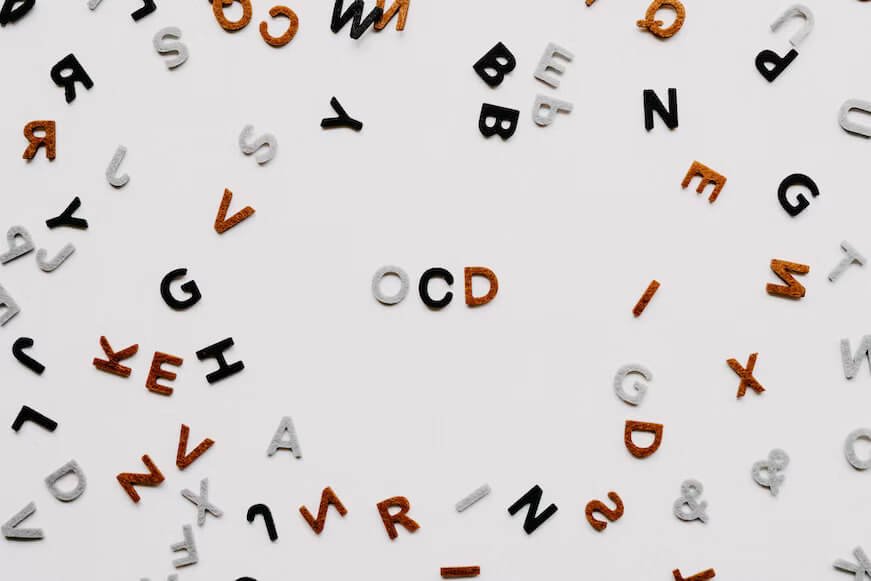Obsessive-Compulsive Disorder (OCD) is a mental health condition that affects millions of people worldwide.
It’s characterized by intrusive thoughts and repetitive behaviors that can have a huge negative impact on your daily life.
The symptoms can include fobsessions related to things like cleanliness, or compulsions (like repeated checking or counting).
Diagnosing OCD can be a challenge, as the symptoms tend to mimic those of other mental health disorders.
And even beyond this, when individuals recognize the symptoms, embarrassment or shame may keep them from seeking adequate treatment.
With that being said, it’s important to get an accurate diagnosis from a mental health professional when it comes to OCD, as leaving it untreated can significantly impact one’s quality of life, relationships, and overall physical and emotional well-being.
To be honest, it tends to be a lot more common than you’d think, affecting around 1-2% of the population worldwide.
And finding effective treatment can be surprisingly challenging, due to many different factors—some of which include limited access to mental health services and inadequate insurance coverage.
But finding the proper treatment (treatment that works) is crucial, as it can help individuals manage their symptoms and improve their overall well-being.
In this post, we’ll explore some of the different treatment options available for people who are suffering from OCD.
This will empower you with the knowledge you need to take back control of your mental and emotional health, once and for all.
1. Psychotherapy
Psychotherapy is a form of talk therapy that helps individuals address mental health concerns.
It involves working with a trained therapist to explore thoughts, feelings, and behaviors, and develop strategies for managing them.
Psychotherapy can be a surprisingly effective treatment option.
It basically helps by empowering people with coping skills—and also challenges negative thought patterns.
These things, as a result, tend to lead to improved overall well-being and healing.
2. Medication
So, when it comes to treating OCD, sometimes medications are used along with psychotherapy.
These meds are usually antidepressants, and can help balance out the brain chemistry to reduce symptoms.
It’s not like they’re a cure, but they can be super helpful in managing OCD.
If you’re considering medication, it’s always best to chat with a mental health professional to figure out what’s best for you.
3. ERP (Exposure And Response Prevention) Therapy
Next, let’s talk about Exposure and Response Prevention (ERP) therapy and how it can be used to treat OCD.
The basic idea is to confront the things that trigger the OCD, and prevent the compulsions that usually follow.
This can be tough, but it helps patients learn to handle their anxiety and break the cycle of obsessive behavior.
With the help of a skilled therapist, ERP therapy can be a game-changer in the fight against this truly troublesome (and sometimes debilitating) condition.
4. Deep Brain Stimulation Therapy
Next, we need to cover Deep Brain Stimulation Therapy (DBS) and how it’s used to treat OCD.
Essentially, this approach involves putting electrodes directly into the brain to regulate activity and reduce symptoms.
DBS has been successful in treating a variety of mental health issues, including OCD, by targeting specific areas of the brain.
Of course, this is a pretty intense treatment with potential risks and downsides, so it’s not for everyone.
But for those who have tried other options without success, DBS might be worth considering under the guidance of a qualified medical professional.
5. Transcranial Magnetic Stimulation
Transcranial Magnetic Stimulation (TMS) is an interesting and often-talked-about treatment approach that harnesses magnetic fields to stimulate the nerve cells in the brain.
This non-invasive method has been used to treat many afflictions, including OCD.
By directing the magnetic fields to specific areas of the brain, TMS can help regulate its activity and alleviate symptoms.
With the wise guidance of a skilled medical practitioner, TMS could prove a valuable ally in the quest to overcome OCD.
6. Medical Marijuana
There is some evidence to suggest that medical marijuana may be a useful tool in treating OCD, although more research is needed in this area.
Indica strains, which are known for their calming effects, may be particularly helpful in reducing anxiety and stress levels associated with OCD.
Sativa strains, on the other hand, have more stimulating effects and may be helpful in boosting mood and energy.
Landrace strains, which have not been crossbred and are pure, may have unique properties that could be beneficial for treating OCD, although more research is necessary to understand their full potential.
Conclusion
Alright. Now you know a lot of information about how doctors go about the process of treating Obsessive-Compulsive Disorder.
It’s important to remember that there are options out there for managing your symptoms, and that seeking help is the first step toward a better life.
We bid you good luck on your journey toward overcoming OCD, and we hope that this post has given you the knowledge and empowerment you need to make informed decisions about your mental health care.

